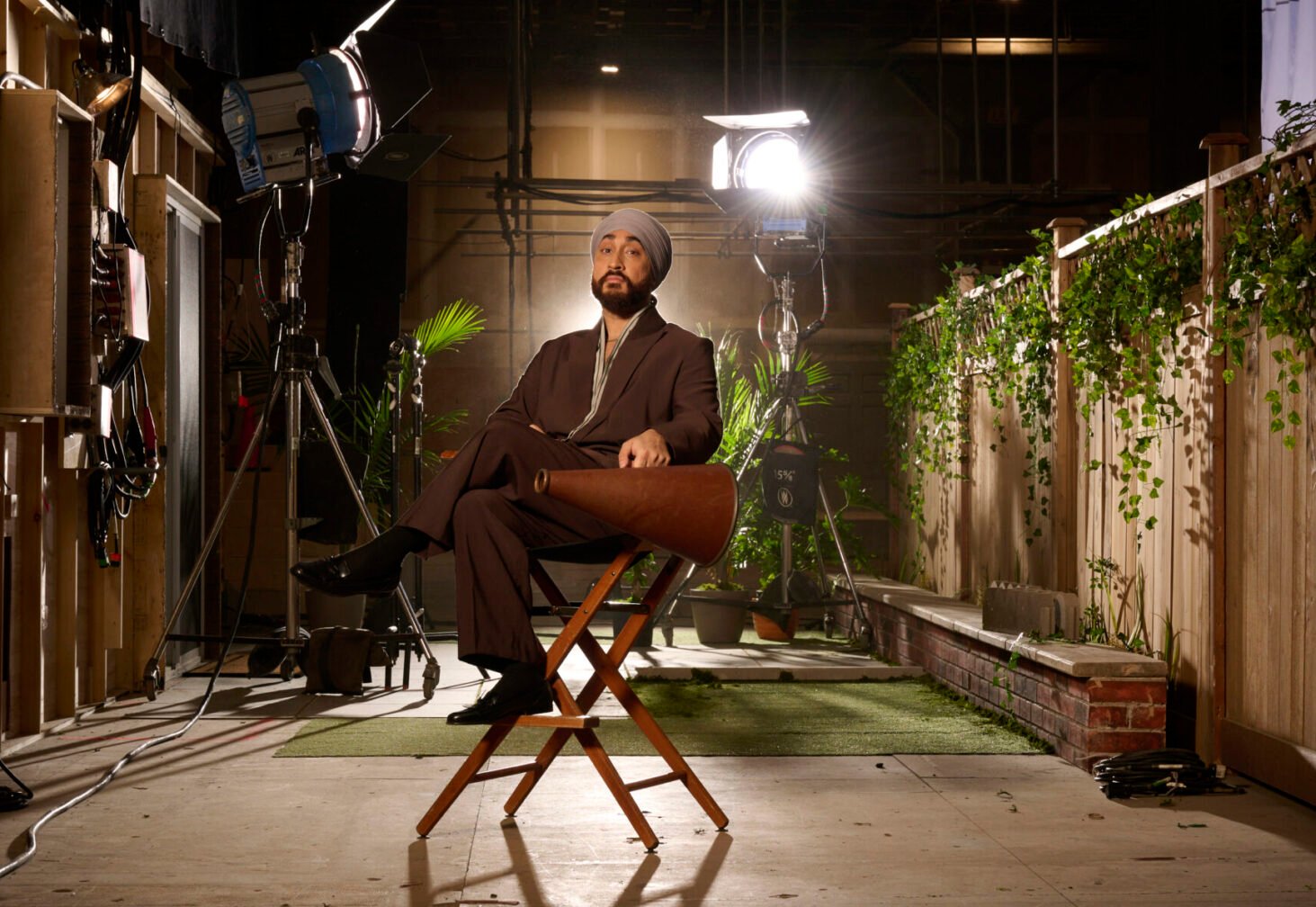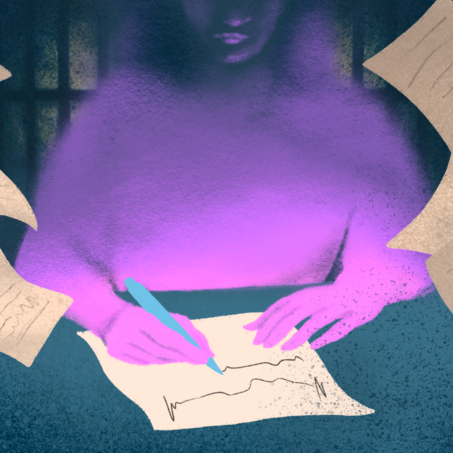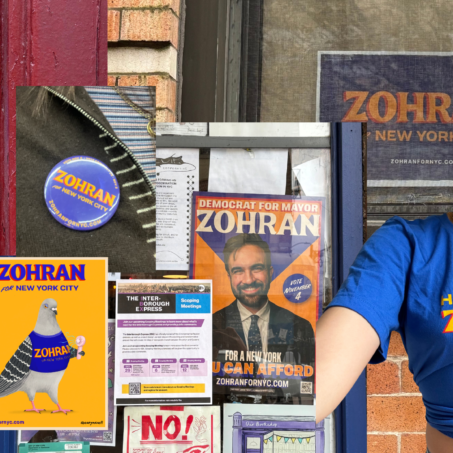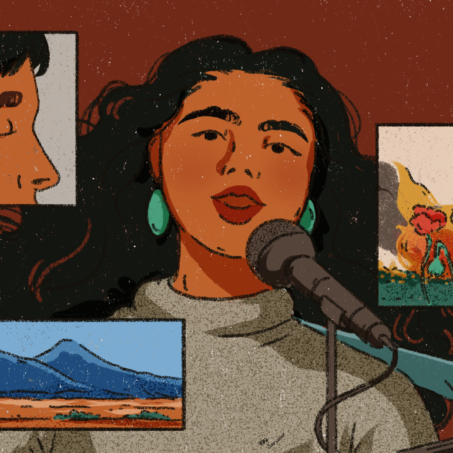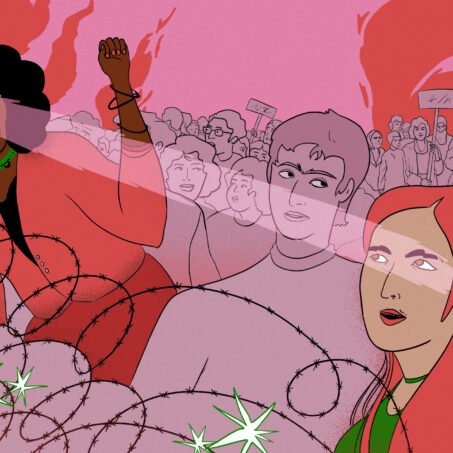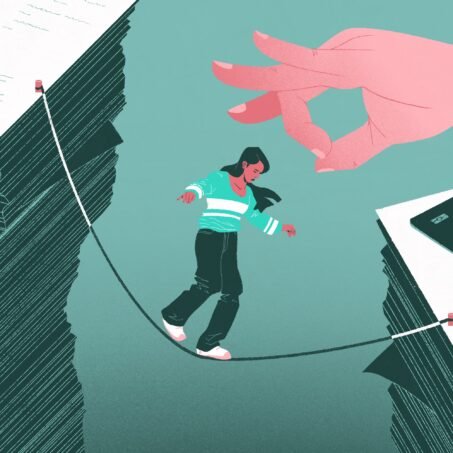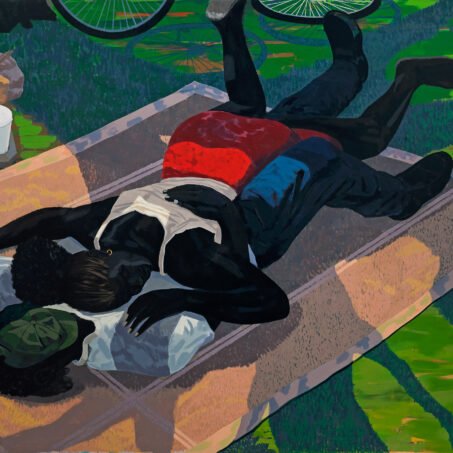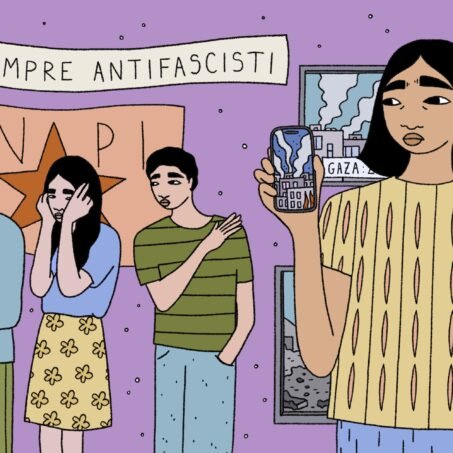Like so many others, I was first introduced to Jasmeet Raina through his early days on YouTube as Jus Reign where he posted skits and satirical rants about the realities of growing up as part of a Punjabi immigrant family in Guelph, Ontario. In the process, he racked up millions of views and established a loyal and passionate fan base that followed his every move. His style was irreverent and clever, exploring everything from deep dives into the nostalgic quirks of Punjabi television, to skits about his parents’ relationship to school, health, and money.
I remember the excitement of a new Jus Reign video dropping in high school, texting friends to see if they’d seen what Jasmeet and his friends had cooked up this time, just to hear lines from his videos quoted left and right in the halls the next day.
Then, in 2018 Jasmeet Raina disappeared from the internet. With demands of a life as an internet persona intensifying, he took a step back to build a healthier relationship with the digital world and work on something new.
Last year, he returned with Late Bloomer, a show loosely based on his own life, which follows Jasmeet Dutta (played by himself) as he navigates, among other things, a budding career on YouTube, family tensions, and his relationship to his religious and cultural identity.
Late Bloomer is complex and refreshing—tackling the realities of Jasmeet and the surrounding characters with nuance, care, and empathy. In capturing the diversity of identities and experiences within the South Asian community, and dealing with issues like generational conflict, class, and gender, Late Bloomer offers a slice of life so rarely seen on Canadian television.
The show brings us into the world of questions swirling in Jasmeet’s head: Where do I want to be in my life? Why don’t my parents understand me? Would I love my identity and religion if I wasn’t born into it?
In one particularly impactful episode, Jasmeet contemplates his relationship with his turban and his Sikhi, after a kid in an elevator innocently asks him why he wears it. The episode reveals the embarrassment and shame he holds for even questioning it himself. We see warmly lit, loving scenes of him and his father tying their turbans together—a depiction so tender and beautiful that it made me emotional watching it.
“[My turban] adds an extra layer of protection, comfort, safety, as I enter and occupy new spaces”, his character says earnestly to the camera, “and represent my family, my culture, my people, my ancestors, my royalty, and also myself.”
After news that the show has been green lit for a third season, and four wins at the Canadian Screen Awards, including one for Best Comedy Writing, Jasmeet Raina is taking it all in.
Calling in from his apartment in Toronto, Jasmeet and I chatted about the reaction to the show, balancing comedy with drama, and the internal work it took to bring him here. For someone who’s spent a good chunk of his life grappling with how the world has perceived him and his work, Jasmeet surprised me with his openness as he took me on the journey that was making Late Bloomer, and discussed creating a show that feels considerate to its audience while accountable to the communities represented within it.
“The last month has been pretty wild,” he says. “What I cherish the most is people saying they really enjoyed Season Two on the streets or in my DMs because that’s real life. It really means a lot.”
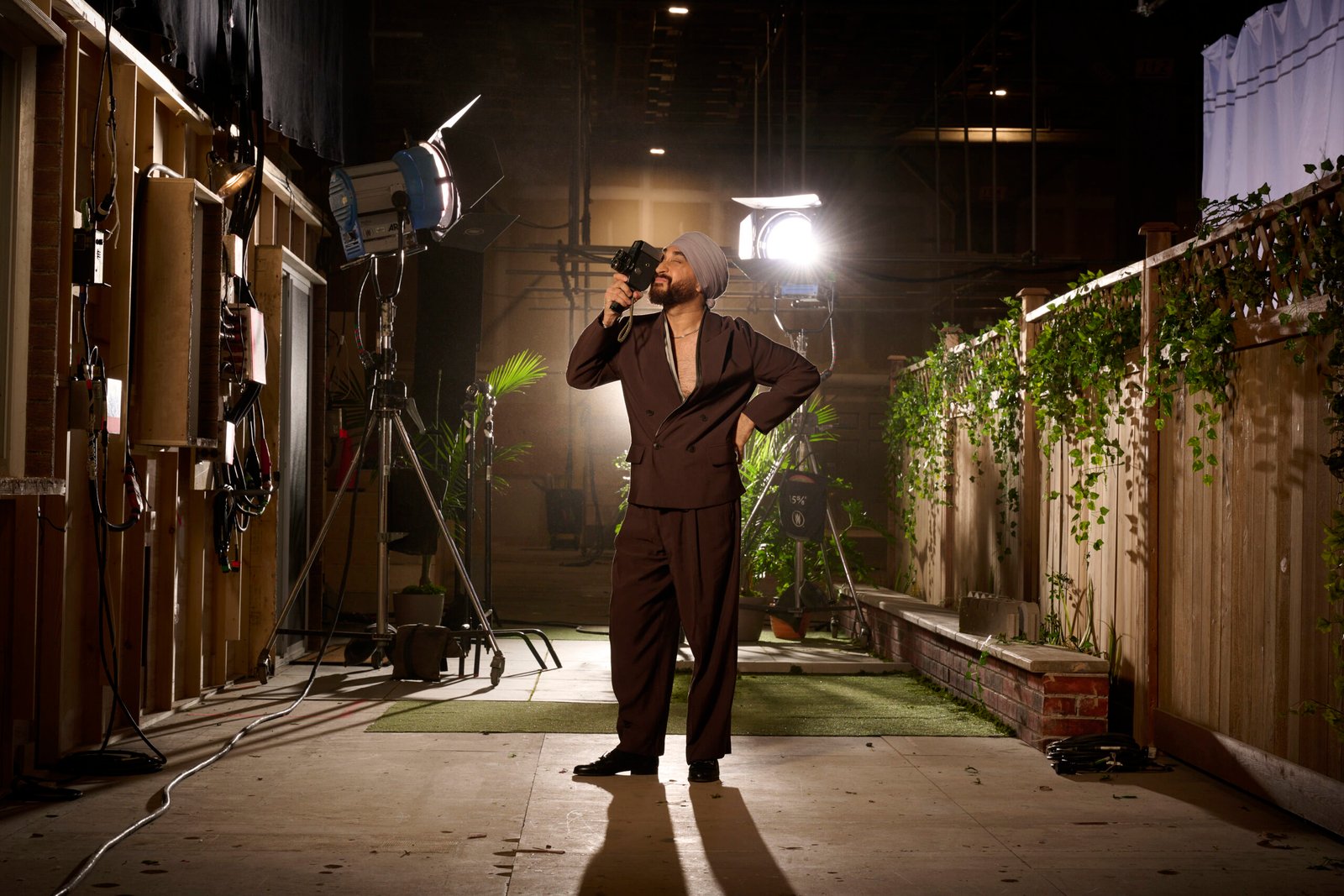
Writing as a tool for healing
In the YouTube days, absurd, slapstick comedy was a helpful vehicle for processing his life through a lighthearted lens. “I love poking fun and creating satire that isn’t punching down, but celebrating our culture,” says Jasmeet.
Audiences were therefore surprised to see how much more serious the tone of Late Bloomer was compared to his time on YouTube. This wasn’t a sketch comedy series, but a more intense look at the elements of young South Asian life in Canada.
After years of self-reflection, and moving back in with his family during the pandemic while writing the show, looking at the same topics through a dramatic lens for TV feels more honest for Jasmeet.
“Being back in my childhood home, all this raw emotion came up. Just being forced to be together and talk through things really helped heal my relationship with my parents,” he explains. “I felt like I had to have that experience in order to get into making the show, because it wouldn’t have felt like real and authentic if I didn’t actually go through that.”
Sidestepping the temptation to idealise his own life through fiction, the character of Jasmeet Dutta is deeply layered, and often flawed. He craves validation from the digital world, and grapples with the ethical lines he may have to cross to advance his career. He has a good, caring heart, but often fails to show up for his sister or mother in the moments they need him most. His imperfections and contradictions, especially in his relationship with his parents, are a part of what makes him so engaging to watch on screen.
“I think a lot of comedy comes from pain,” he explains. Drama and comedy, Jasmeet tells me as he reflects on the journey from one medium to another, are two sides of the same coin.
“I think that my YouTube was like Late Bloomer, but funnier. It was [capturing] parent situations, how kids react—I was just memorising my kid trauma and all the dumb shit I had to go through.”

Join our mailing list
Sign up for shado's picks of the week! Dropping in your inbox every Friday, we share news from inside shado + out, plus job listings, event recommendations and actions ✊
Sign up for shado's picks of the week! Dropping in your inbox every Friday, we share news from inside shado + out, plus job listings, event recommendations and actions ✊
A refusal to limit
Where we often see diasporic South Asian stories in the media that centre a child perpetually misunderstood by their rigid parents, Late Bloomer also gives us a window into the conditions that made his parents the way they are—moving to Canada at a young age after an arranged marriage, enduring brutal racism and discrimination, providing for a family while trying to be a present and caring parent— it shows us that it is no easy task. A story like theirs is the story of so many of our parents who came here in search of a better life for their children, one they struggle to understand as they get older.
After years of poking fun at his parents and himself on YouTube, particularly through his Desi Parents series, Jasmeet felt he wanted to portray more of their journey. “There’s so much strength and bravery to them, and I feel like I hadn’t addressed that,” Jasmeet says.
The show writes conflict with his parents so accurately, for many, watching it feels like a mirror to our own lives.
The silences, slight jabs, months long grudges that seem too strongly held to ever dissipate. Still, Jasmeet writes to his parents with unflinching empathy, an element that wasn’t quite as compatible with the YouTube format and, truthfully, something he admits he wasn’t quite ready to delve into yet.
For every moment that seems to poke fun at his parents, there’s a moment that brings us into their world. Jasmeet’s father Gurdeep quietly ties his turban before a long day of work at the factory that ends with massaging his stiff hands before bed. Jasmeet’s mother Supinder’s tireless attempts to build out a catering business in her spare time to fill the void of her children growing older and, perhaps, needing her less often than they used to.
“A lot of us have these same relationships with our parents that are tainted, hurt or just not healed yet,” he explains. “I felt like I had to have that experience in order to get into making the show, because it wouldn’t have felt real and authentic if I didn’t.
When I first watched the show, my initial thought was about how much my own Dad would love it. Immigrating to Canada in the 1970s, Jasmeet’s internal struggles felt akin to the stories my Dad told me about growing up when the Punjabi community in Surrey was far less established than it is now. To have media that can speak to multiple generations from a thoughtful place, puts that healing and internal work, right into action.
Reimagining our narratives onscreen
One of Late Bloomer’s biggest strengths is its refusal to paint its world as monolithic, neither by gender, class, race nor identity. It captures the world of experiences within the South Asian community in Canada: Jasmeet’s mom in the show, like his mom in real life, is Kashmiri-Punjabi and speaks a different dialect than other characters. His sister Maanvi grapples with the unique pressure placed on daughters to be perfect, and seek marriage above all else. His girlfriend Rebecca is Christian-Punjabi, highlighting the religious diversity of the region, and also the class differences in their respective upbringings. Jasmeet’s cousin Neal is half-white and grappling with his place within the Sikh community, particularly after cutting his hair post 9/11.
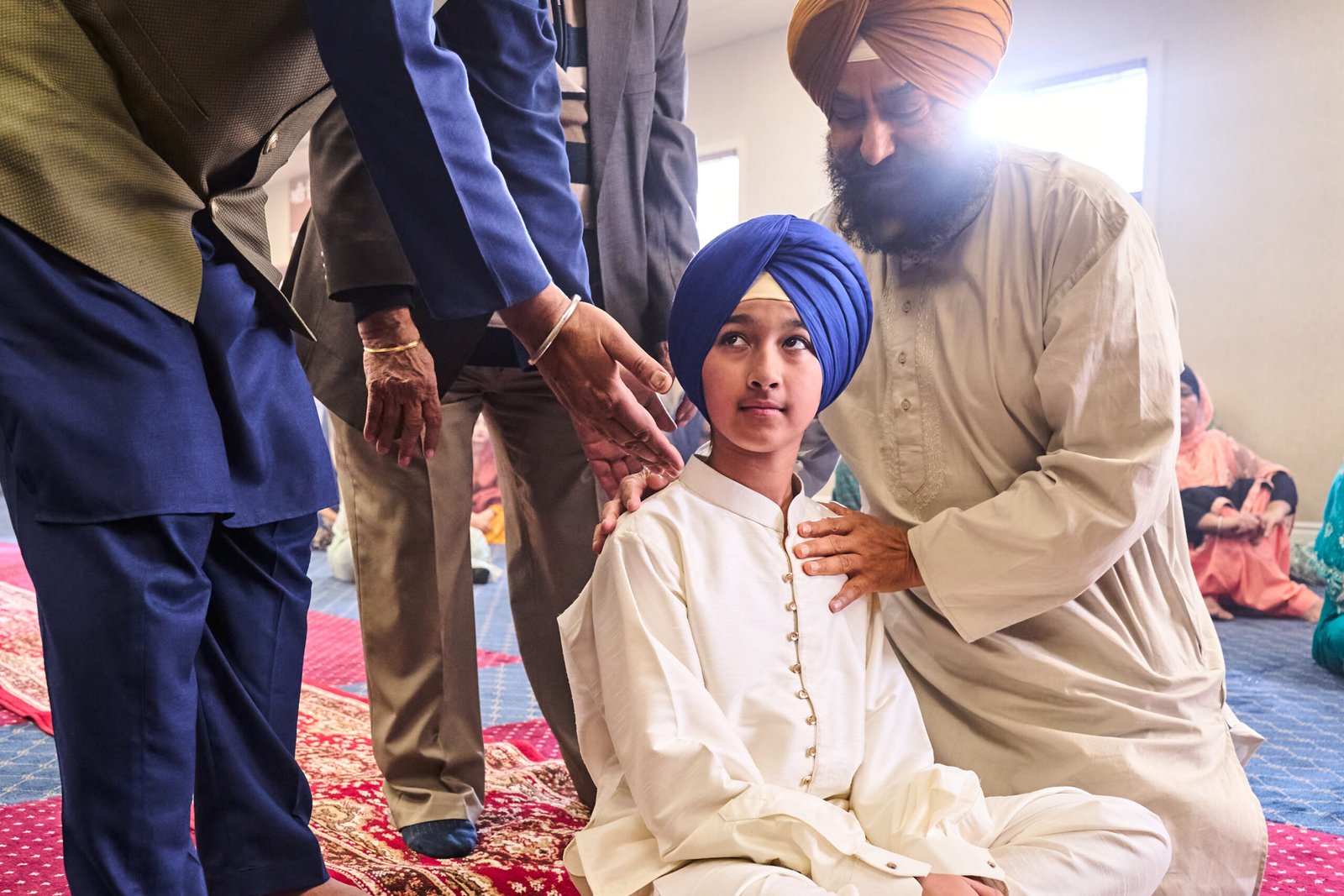
While watching the show, I thought about the stories we so often hear about how character arcs or cultural nuances have to be sacrificed in order to make a show viable or commercial. A part of what felt so precisely illuminating about Late Bloomer is how it refuses to pull its punches in terms of specificity.
From the sets to the dialogue and the range of dynamics covered, Jasmeet recognises the ambition in his meticulous attention to detail, and also the reality that it may not always land. “The biggest challenge is really trying to do justice to all of [their storylines] within the time that you have, and sometimes, naturally, you might fall short,” he says.
A particularly impactful note in Season Two is a standalone episode titled “New Canadian”, which Jasmeet also directed, which addresses the mounting and vitriolic anti-immigrant racism against South Asians in the country. It offers a compassionate look at a day in the life of an international student (played by Siddharth Sharma) working as a food delivery driver in Toronto between his studies.
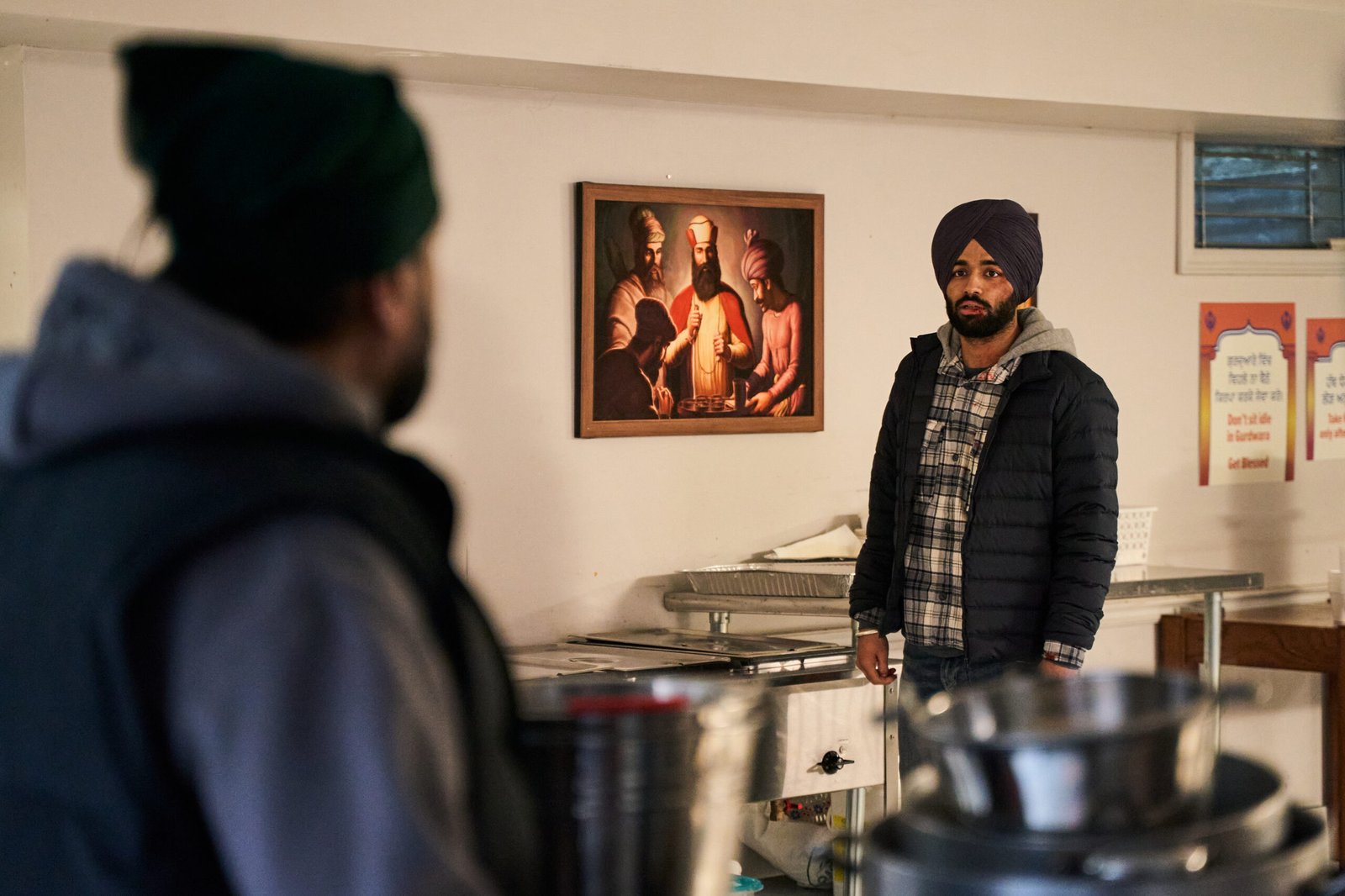
The magic of Late Bloomer, and this episode, is in the details. Jasmeet is heavily involved in the final edit and fought for elements that captured the emotional reality of the characters. In “New Canadian”, this meant making space for quiet scenes, where the central character bikes through the streets of downtown Toronto, or cooks himself a meal after a long day. These elements make the episode so impactful, because they breathe reality into the experiences of a community that is so deeply scapegoated, scrutinised, and misunderstood.
“There’s a lot of air in the scenes in the episode, and I remember the network or producers being like, ‘We don’t need this, we need to cut this down,’” Jasmeet told me. “I was like, no because this is what it feels like in that basement, the low lighting, the darkness. This is real to me.”
To represent is to honour
I often find conversations about representation to be tiring, and a little frustrating. After all, it’s not simply about having Punjabi people on screen, a box to check off. More than just feeling represented, we need stories that speak to an experience which is honest, textured and lived-in.
Creating a show about a community is so much more than simply television. For Jasmeet, it’s really a way to honour them and their legacies. “It’s a love letter to the people in my life, writing to them and putting them on the show,” says Jasmeet. “The hope is you get to see a more nuanced version of our community and culture.”
That’s what I found with Late Bloomer, worlds upon worlds that have something meaningful to say about growing up in Canada, grappling with how relationships morph and change as we do, and the layers of privilege and discrimination we face in the process. Each episode gives us something to consider about ourselves and the way we relate to each other, and that in itself is such a win.
What can you do?
- If you’re based in Canada, stream the first two seasons of Late Bloomer on Crave
- If you’re outside of Canada, reach out to your public broadcaster and ask them to pick up Late Bloomer
- Read more articles by Jeevan HERE
- Keep up to date with Jasmeet Raina HERE
- If you like Late Bloomer, check out

